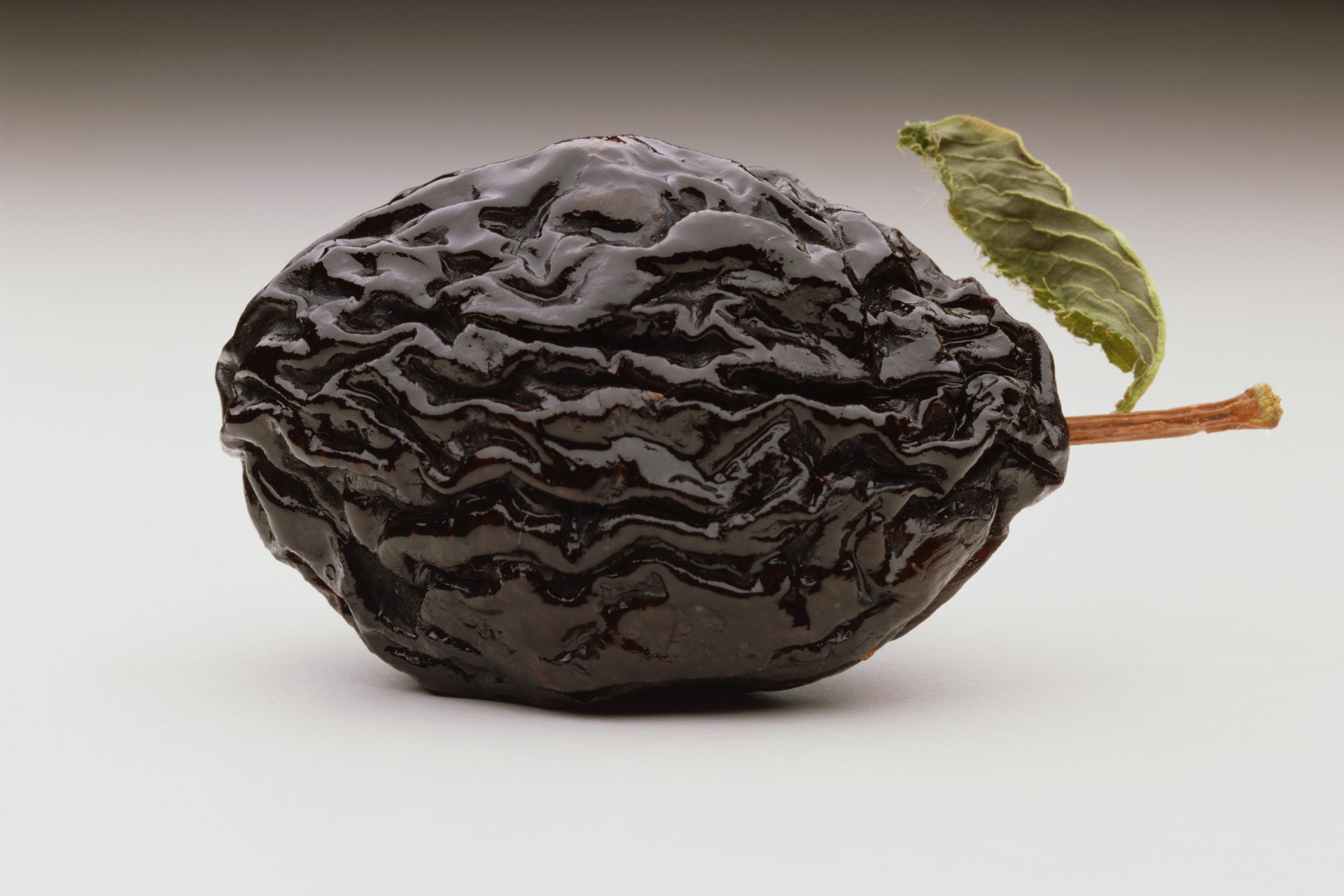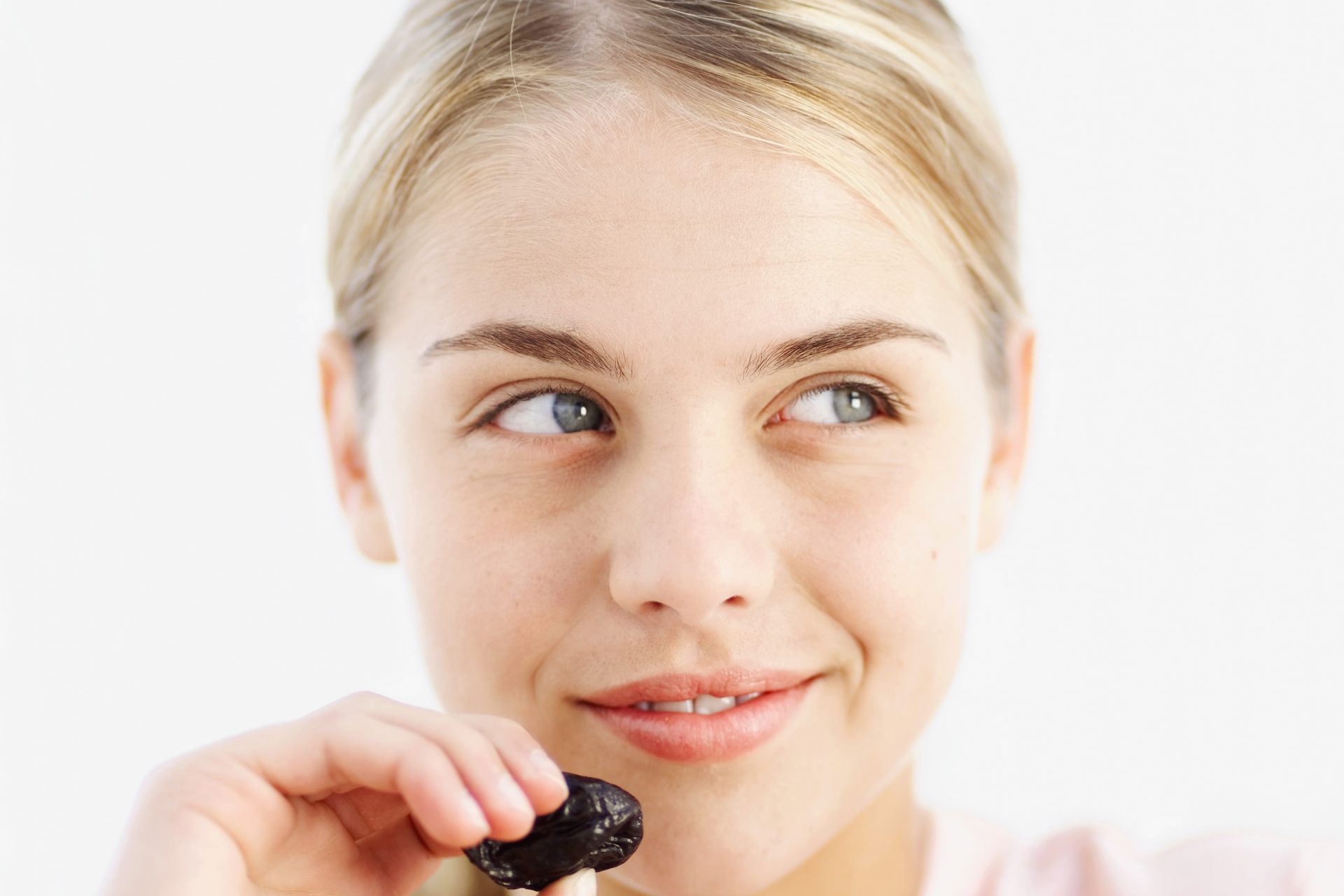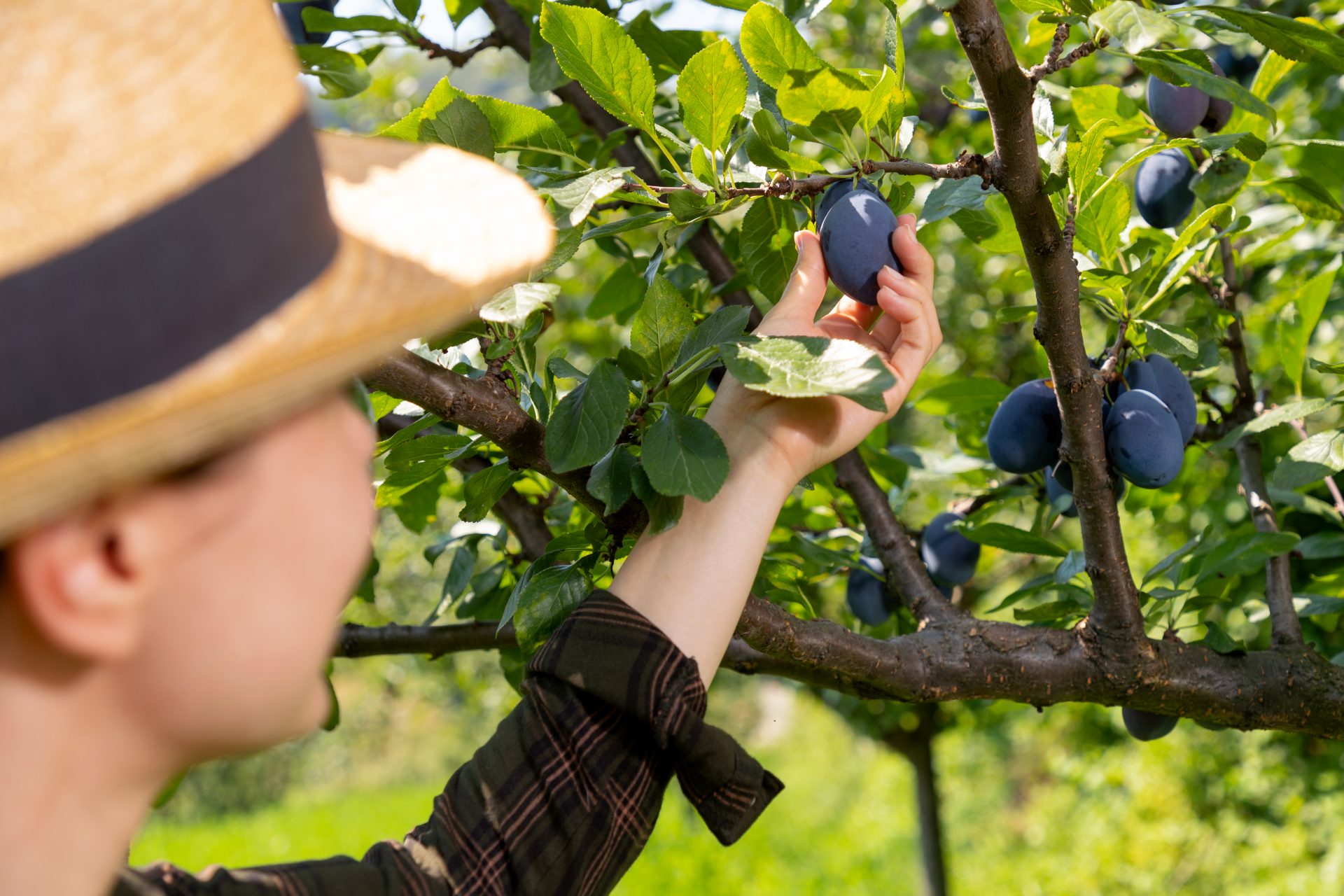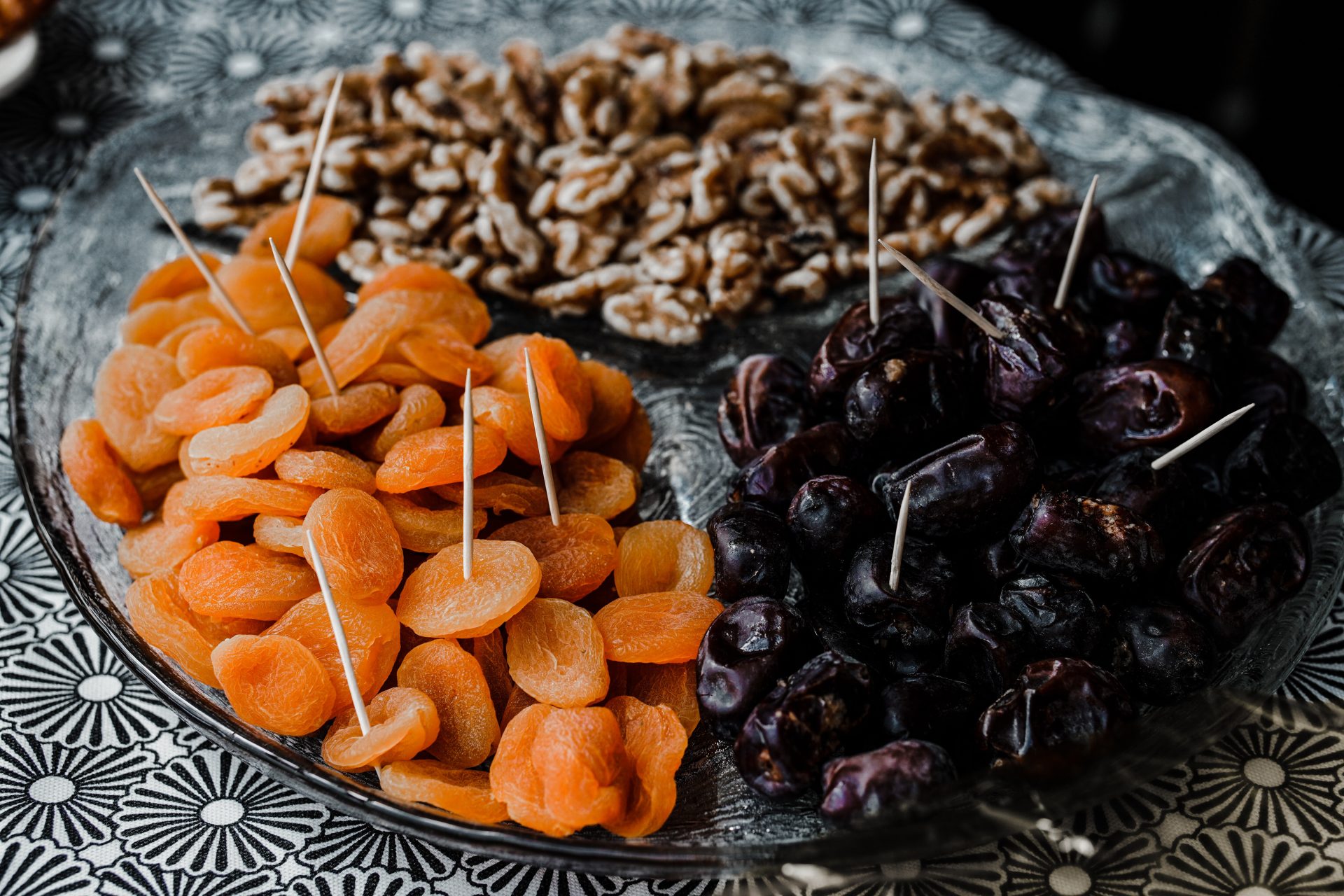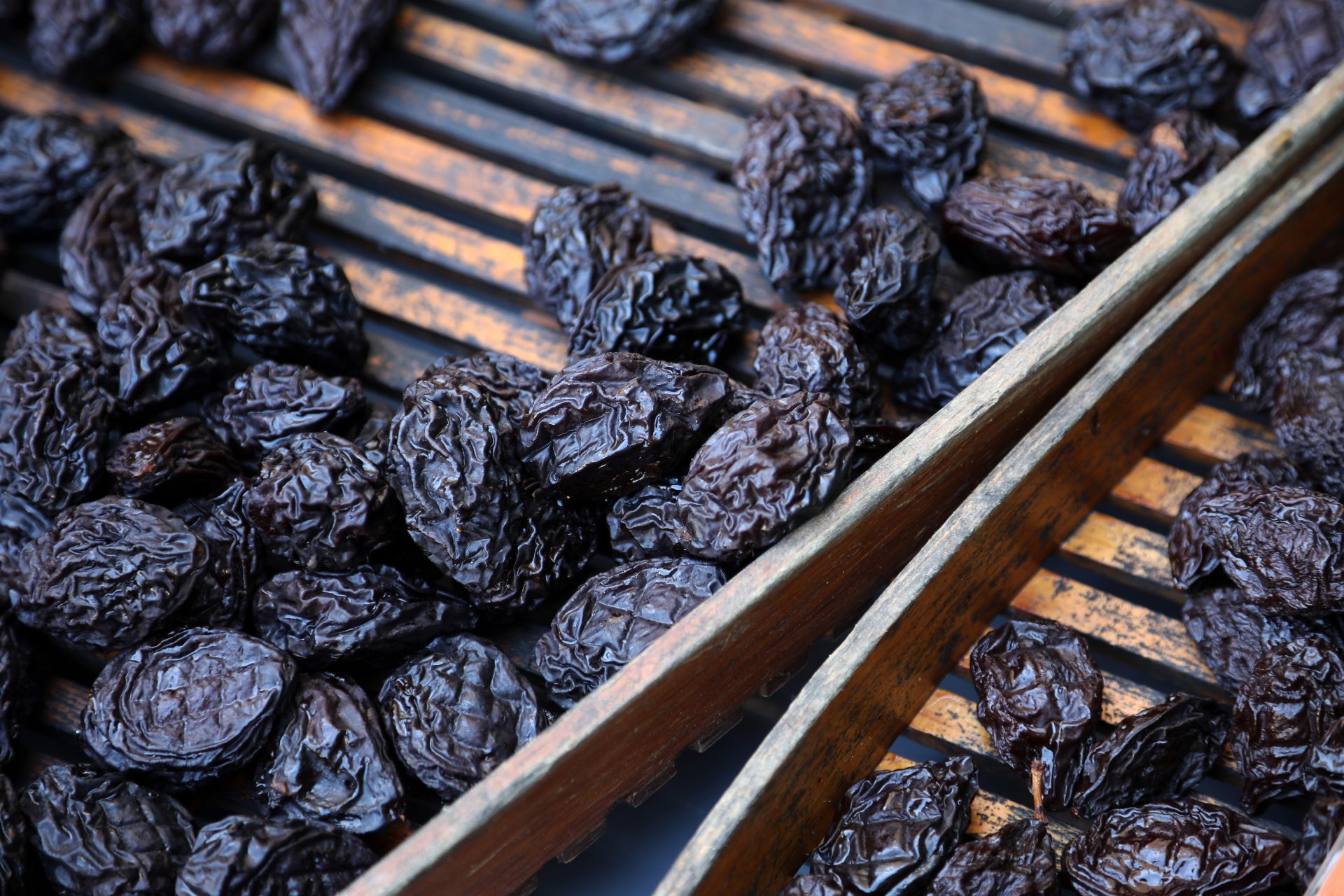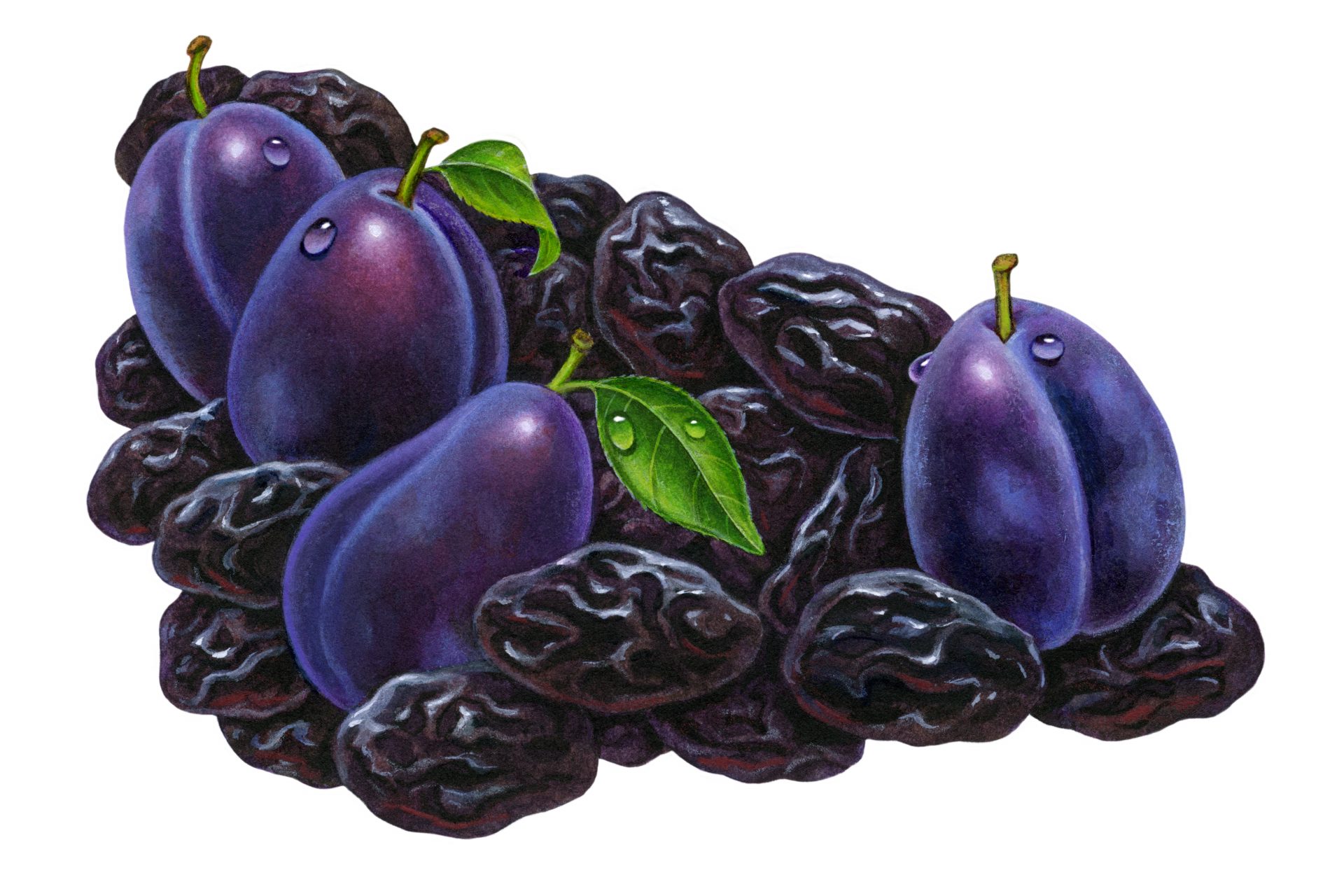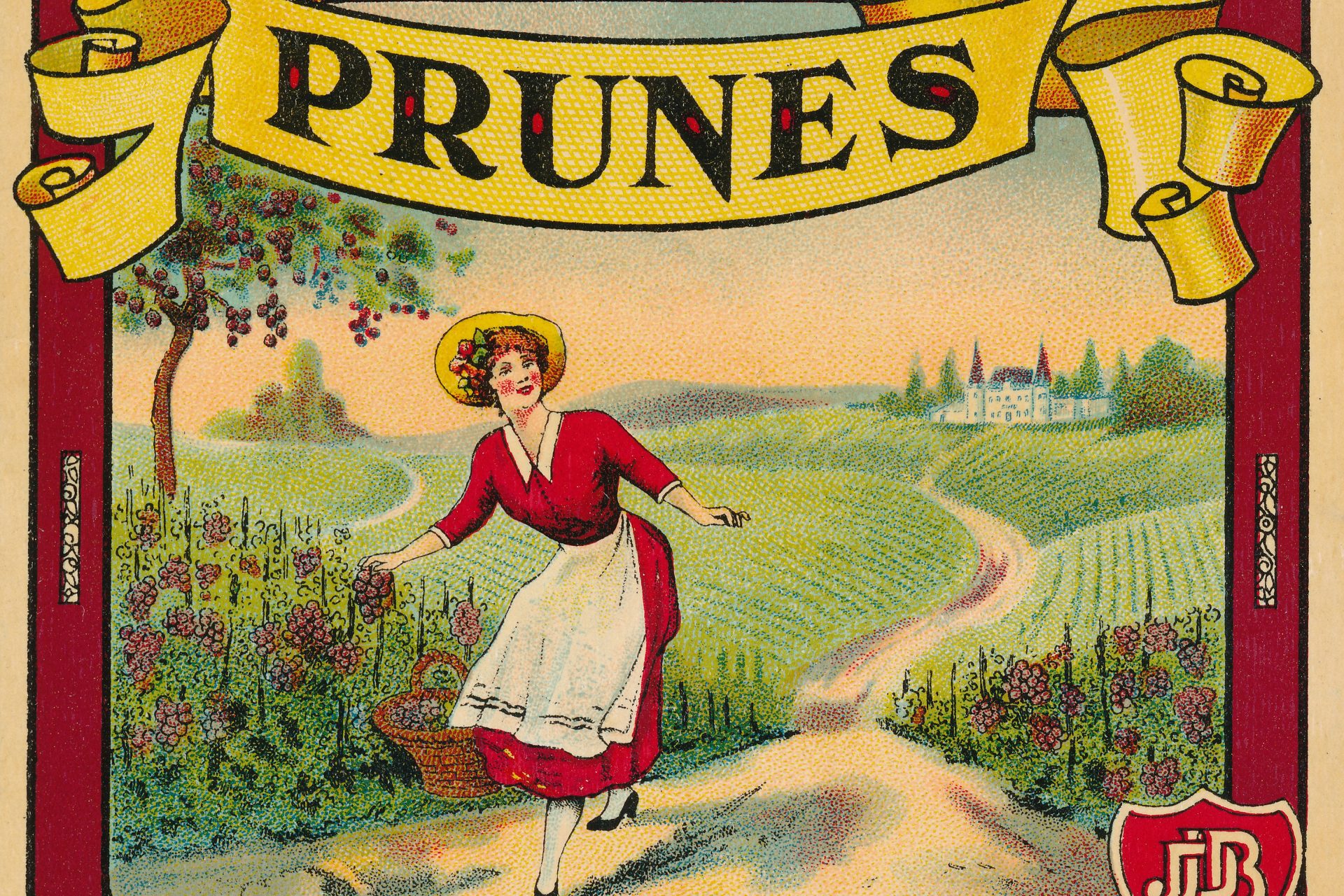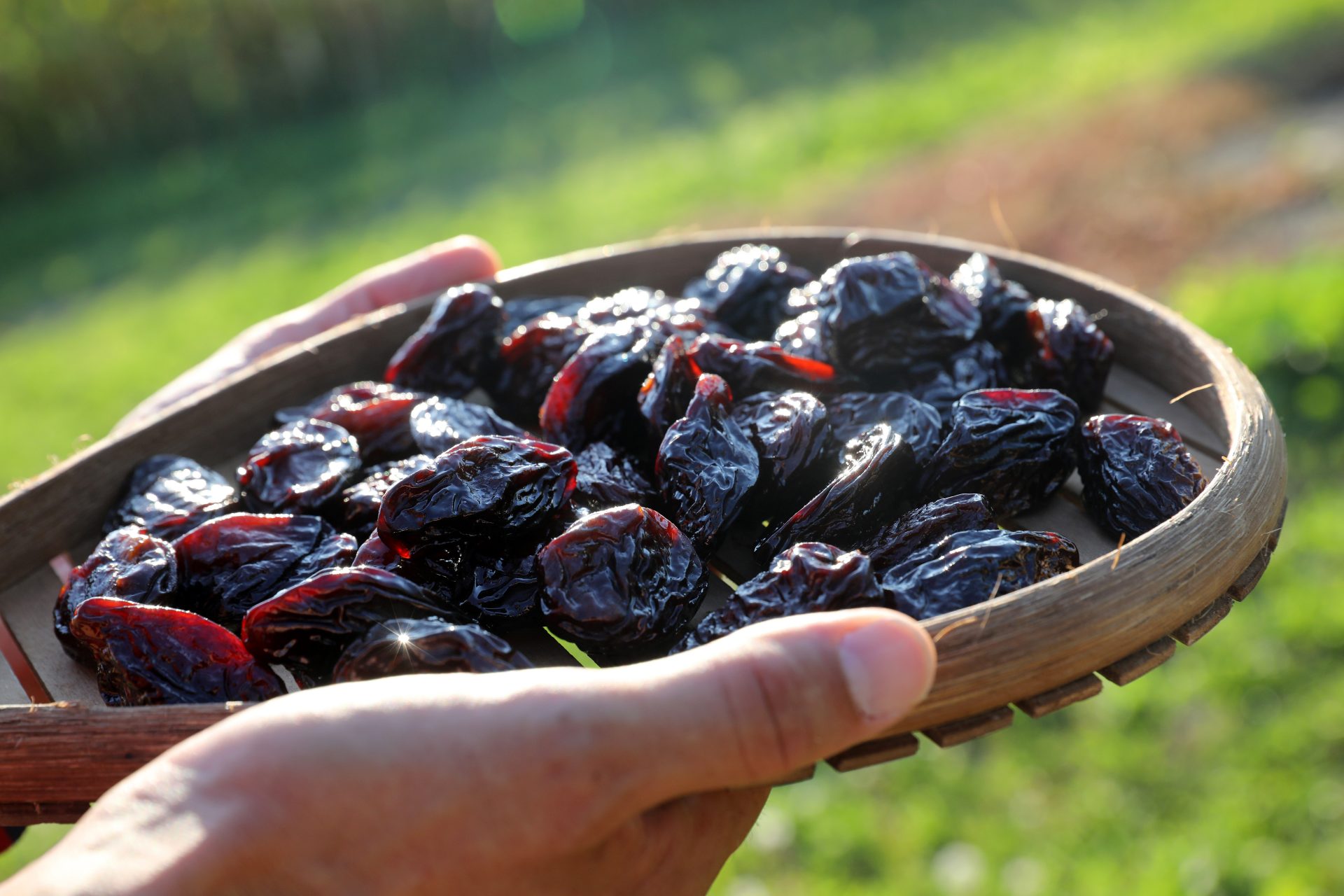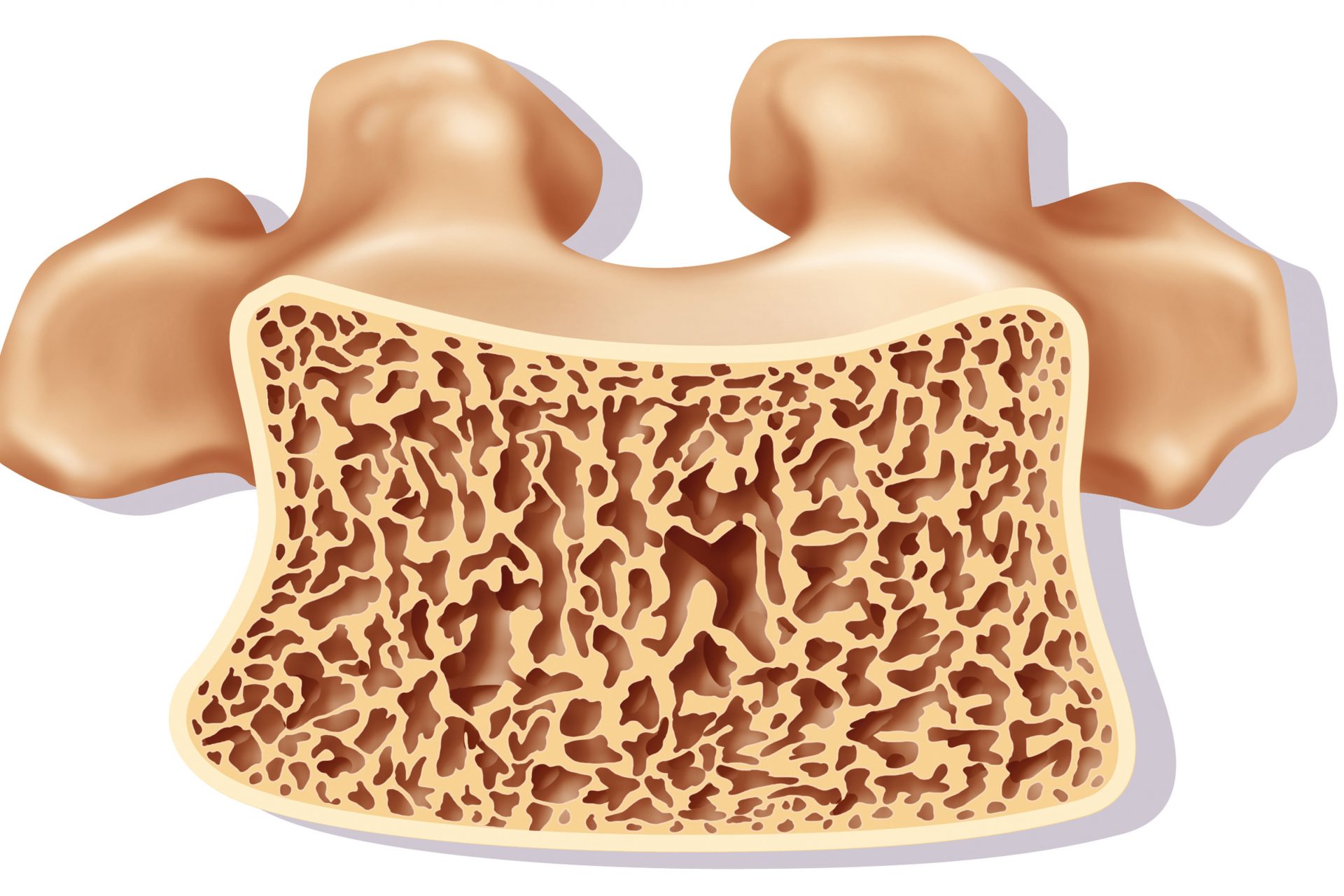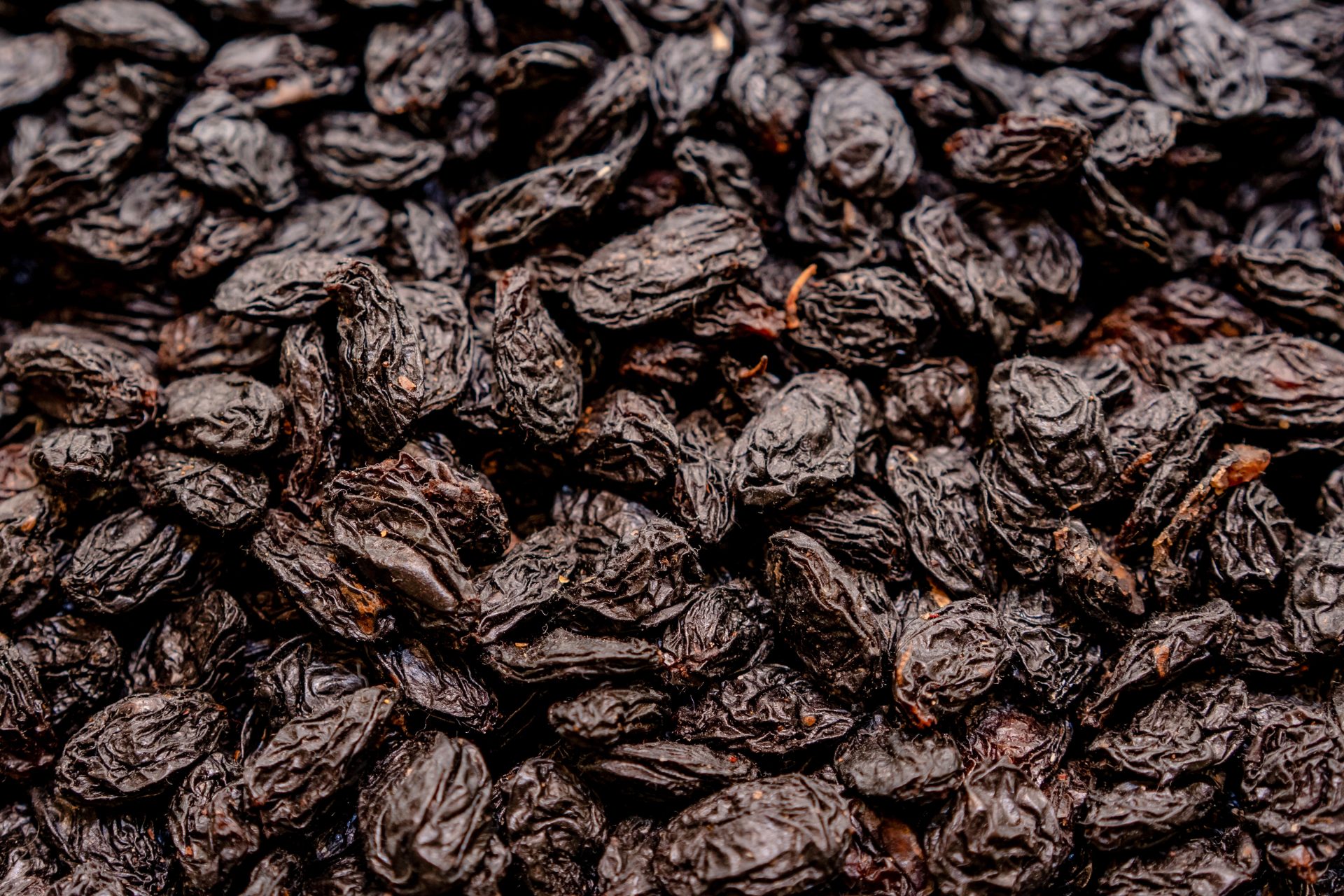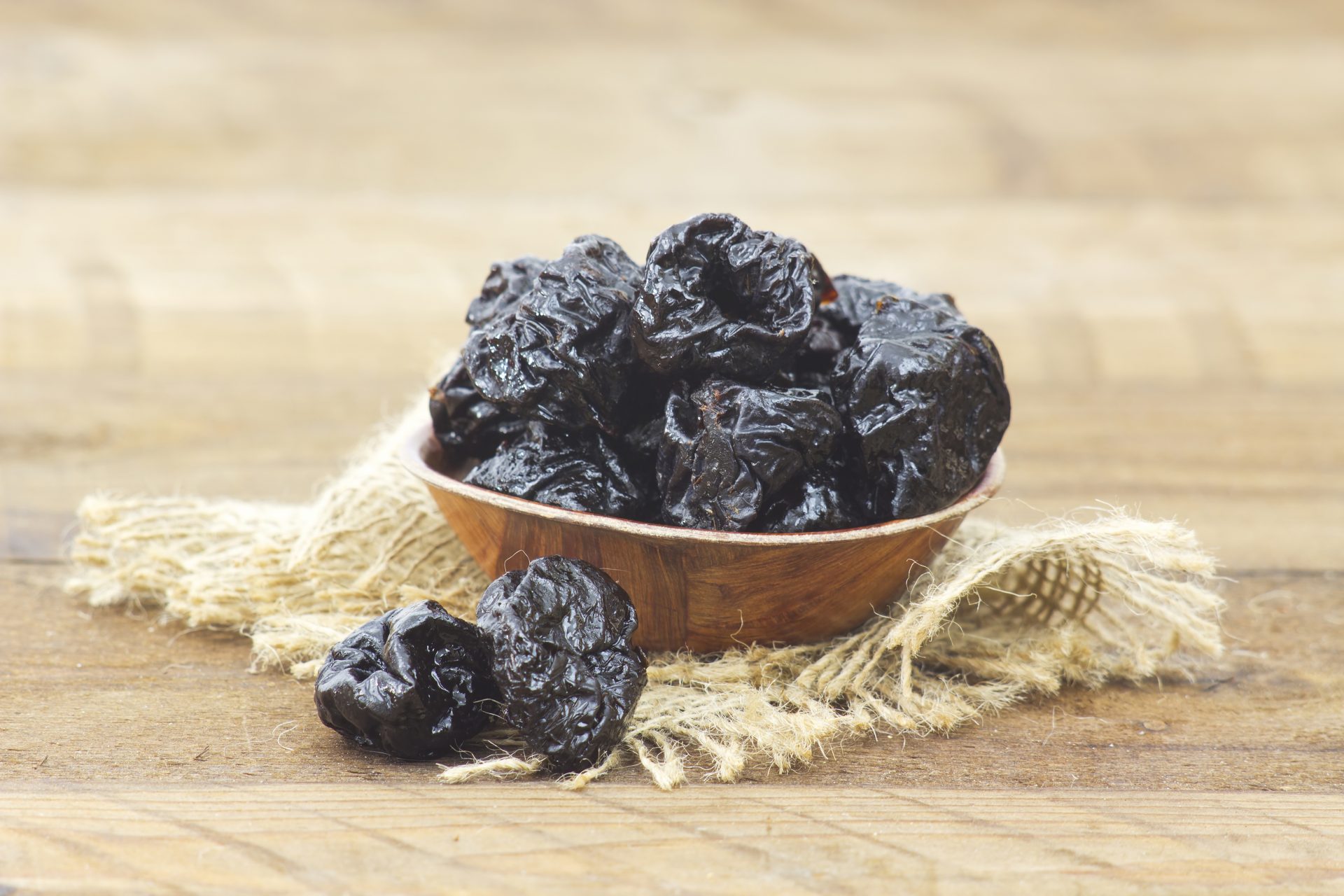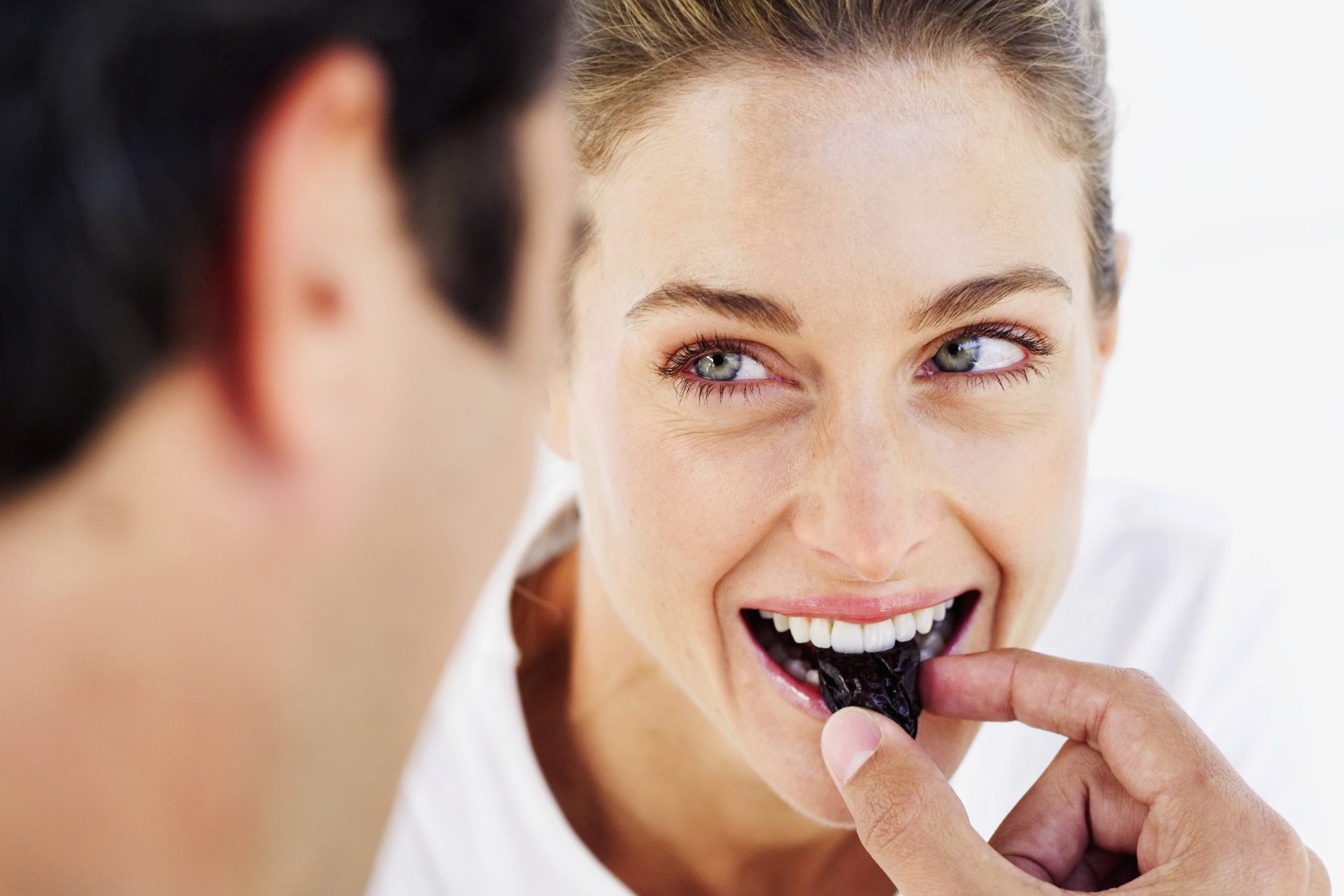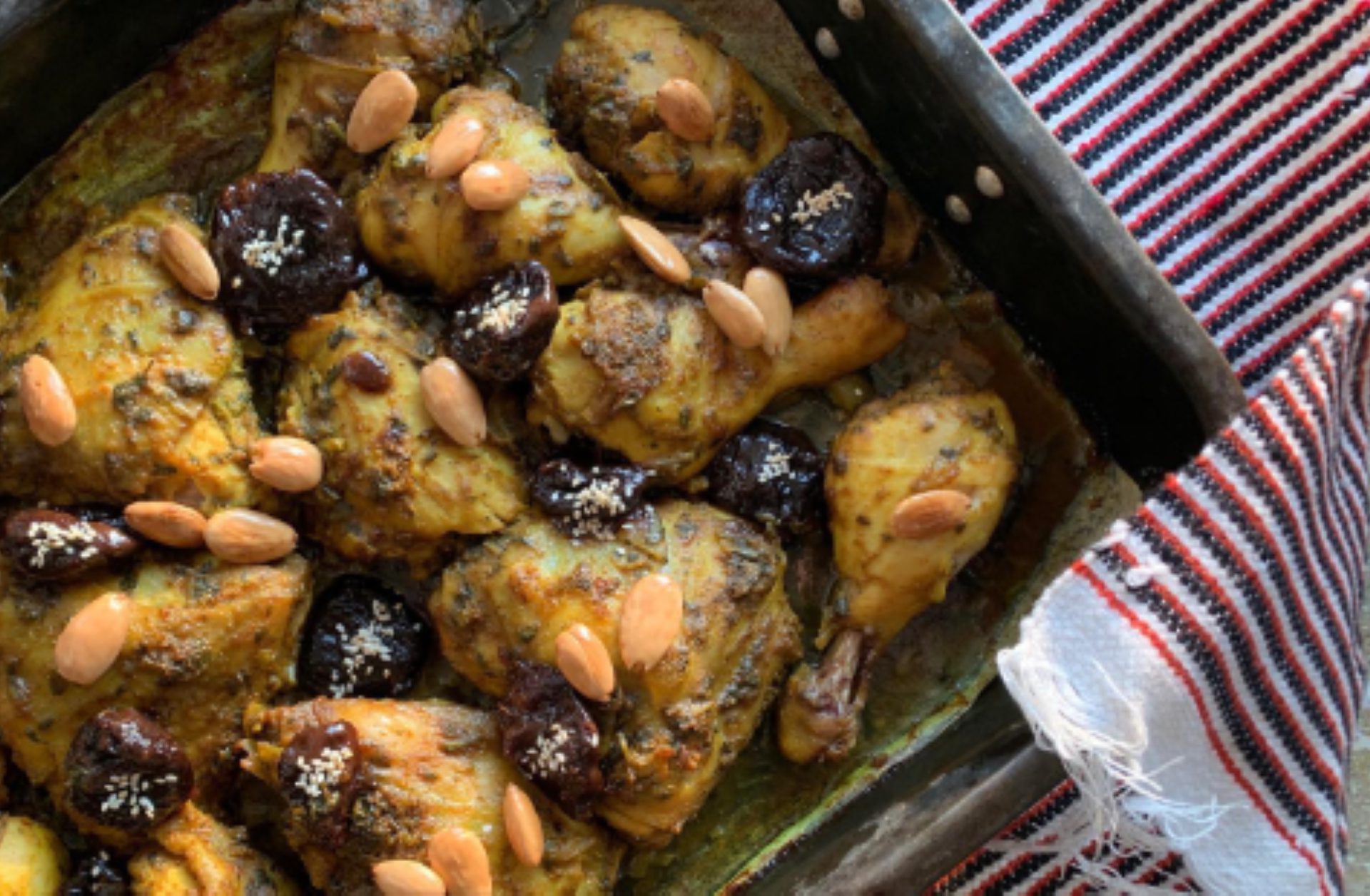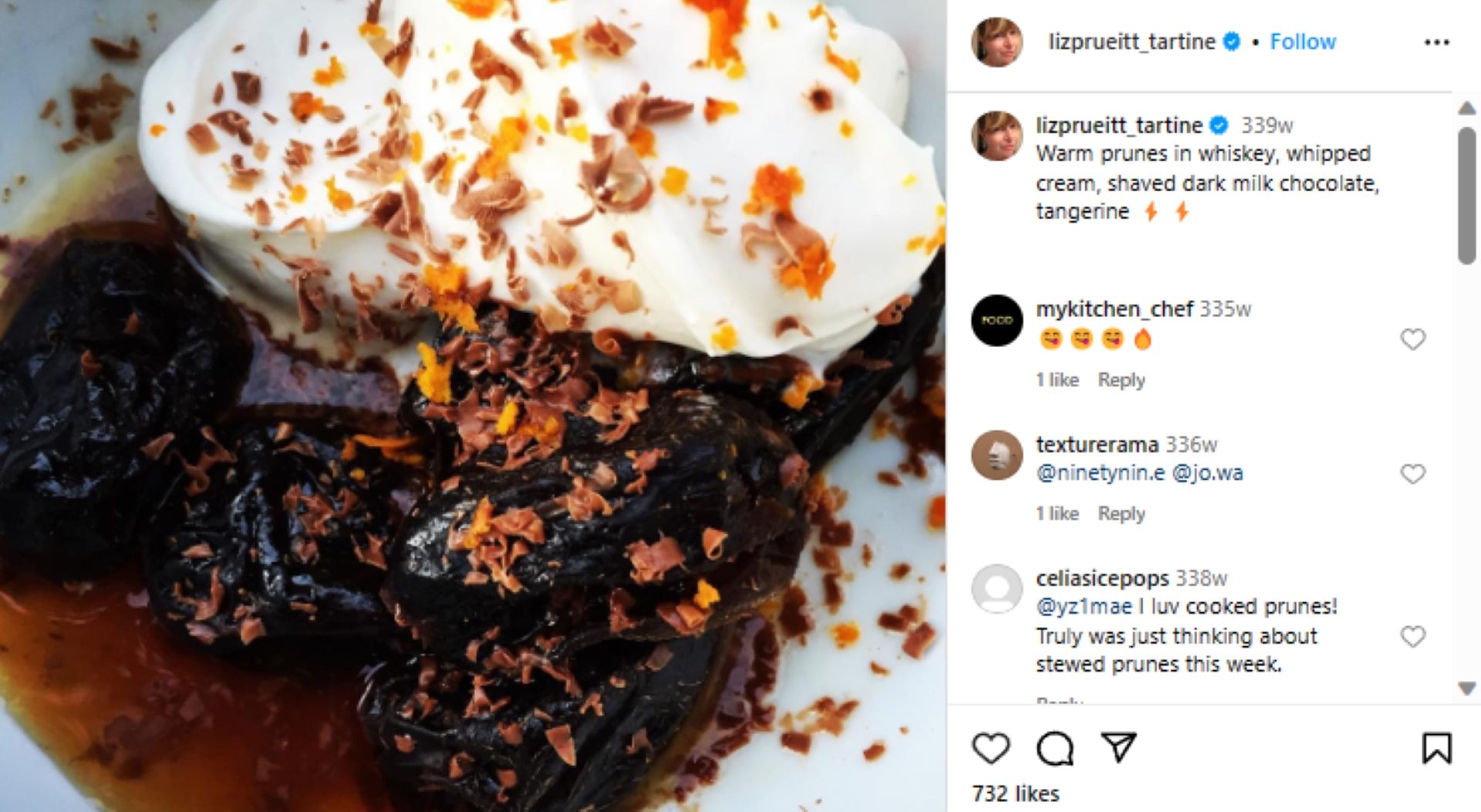Prunes: the sensual new superfood
The humble prune is having a moment. Trying to break away from the stuffy reputation as a constipation cure served in senior citizen homes, prunes are making waves not only for their numerous health benefits but also their gourmet taste.
A viral 2022 article in the foodie magazine Eater pleads for the world to give prunes another chance. "Prunes, it turns out, are incredibly tasty. They have a subtle sweetness tempered by a rich, earthy tang and a gorgeous jammy texture. They're not too sweet, not too sour, not too sticky, and not too dry. They're just right. Goldilocks would be thrilled with prunes," wrote author Genevieve Fullan, who started eating them for health reasons but soon became hooked.
Figs are figs, dates are dates, but prunes are actually just dried plums. Humans have been making prunes for thousands of years in the Middle East, Japan, and Europe. The process involves drying out ripe plums until around 80% of the fruits' moisture evaporates. They can later be re-hydrated industrially with steam, making them plump and juicy or the same process can be done at home in hot water or tea.
Although California produces 40% of the global supply of prunes, in North America, prunes have long been relegated to the health food aisle.. and not in a cool way like kale or chia seeds. Kiaran Locy of the California Prune Board admitted that prunes "have always had an awareness problem."
Photo: Mushtaq Hussain / Pexels
One of the reasons that prunes may have a bad rap is due to their not-so-appetizing association with curing constipation. In Europe, Japan and other regions, young people see dried fruit as healthy and trendy. But in the US "people see prunes as a laxative for oldsters," prune lobbyist Dan Haley told the Washington Post in 1999.
After conducting research on the name prune and finding 70% of Americans surveyed preferred the term "dried plum," the California Prune Board began lobbying the FDA to officially change the name. They were successful! In 2002, the FDA approved the name change. The California Prune Board also changed its name to the California Dried Blum Board.
While prunes are literally just "dried plums," the name change was a bit of a flop. In 2019, 19 years after changing its name to the California Prune Board, the body reverted to its original name and began marketing dried plums as prunes again. The new marketing slogan, "Prunes. For Life," is also a nod to the fruits' many health benefits. So let's see what the wrinkled fruits can do for you...
The National Osteoporosis Foundation estimates that over half of Americans age 50+ have either osteoporosis or low bone mass. A 2017 study published in PubMed found that prunes have unique nutrients like high levels of Vitamin K, potassium, and certain phenolic compounds and flavonoids, which is why some studies suggest prunes are especially good for bone health and preventing bone loss.
Another 2017 study found that prunes are an effective food for preventing and reversing bone loss in postmenopausal osteoporosis. Meanwhile, a 2016 study gave postmenopausal women 0 grams of prunes, 50 grams (5-6 prunes), and 100 grams per day… finding that eating between 50 and 100 grams of prunes per day was effective in preventing bone loss in postmenopausal osteoporosis, with some research even suggesting prunes can even reverse low bone density.
Constipation can be a hard life problem, and prunes have infamously been touted as a cure. But there was major drama when the EU ruled that there was insufficient evidence to market prunes as a laxative. However, in a rare backtrack, EU regulators reviewed the evidence and in 2012, ruled that prunes can indeed "contribute to normal bowel function."
Another study in Alimentary Pharmacology and Therapeutics found that prunes were better than the popular supplement psyllium for treating constipation, even though the doses contained the same amount of fiber. In fact, prunes aren't especially high in fiber… but researchers suggest that prunes' unique combo of sorbitol, water-soluble fiber, and polyphenols is what really makes them work.
Photo: Oleksandr Canary Islands/ Pexels
Prunes are also rich in antioxidants, and those found in plums and prunes, in particular, may have anti-inflammatory effects and the ability to prevent cell damage that can lead to disease, according to Health Line, citing several studies.
Follow Showbizz Daily to stay informed and enjoy more content!
Although prunes are sweet and fairly high in carbs, they do not appear to cause a substantial rise in blood sugar levels. This may be partly due to high fiber, as well as the potential to increase levels of adiponectin, a hormone that plays a role in blood sugar regulation. One study in the BMJ linked prune consumption to lower rates of type 2 diabetes.
Prunes and plumbs have been studied for their ability to reduce high blood pressure and cholesterol levels, major risk factors for heart disease. One study found that men who had been diagnosed with high cholesterol had lower "bad" cholesterol levels after consuming 12 prunes daily for eight weeks.
According to the New York Times, prunes are also lower than other dried fruits in sugar. Raisins and dates are about 60 to 65% sugar, dried figs and apricots are about 50% sugar, and prunes are about 38% sugar.
But it's more than health. Prune-apologists say prunes are not just a fruit, but a sensory experience. Los Angeles chef Kat Turner told Eater she's "here to make prunes sexy," describing their creamy texture and rich flavor as "sensual," "unctuous," "silky," and "luxurious."
Prunes are staple ingredients in excellent dishes around the world too. Apart from eating them straight, in yogurt as pure or in jams, they are used widely in savory dishes in cuisines like the French pounti (a type of pate mixed with veggies and meat), added to Moroccan tagine or included in French stuffed duck recipes.
Photo: Moroccan Chicken Tagine with Prunes, laila_loves_baking / Instagram
Black, glossy prunes are celebrated by foodies as an interesting ingredient in deserts too. Paris-based pasty chef told Eater that they are "almost chocolatey." Ideas can range from this dish of warm prunes in whiskey, whipped cream, shaved dark milk chocolate, and tangerine made by James Beard Outstanding Pastry Chef Award recipient Liz Prueitt, or incorporated into cakes like a frangipane-prune tart. As a healthy bonus, its natural sweetness can help replace added sugars in all sorts of recipes.
Image: lizprueitt_tartine / Instagram

